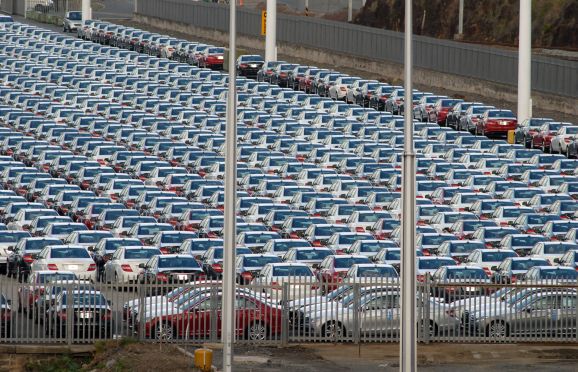
Rand at Historic Lows Against UK/US Currencies on China Woes
The South African Rand traded at almost R21.22 to the British pound today (Monday), its worst level ever. The U.S. dollar is R13.94, meanwhile, slightly up on it worst-ever level of R14.07 on 24 August. The news comes two days before Rand Merchant Bank and the Bureau for Economic Research are to release their business confidence index […]

The South African Rand traded at almost R21.22 to the British pound today (Monday), its worst level ever. The U.S. dollar is R13.94, meanwhile, slightly up on it worst-ever level of R14.07 on 24 August.

The news comes two days before Rand Merchant Bank and the Bureau for Economic Research are to release their business confidence index that is based on business executives’ opinions. According to a report in Business Day on Monday, the index has been hovering below the neutral 50 mark for the last five years, and its decline has been quicker of late.
On Thursday, mining and manufacturing data is to be released, also impacting economic indicators.
In his review of the latest currency meltdown, economist Cees Bruggeman’s said, “At least the weak rand at $13.87 and €15.44 [is] shielding our exports and local output while discouraging imports, eroding the current account deficit. I knew there had to be a silver lining somewhere in all this dreadful reality.”

MediaClubSouthAfrica.com
The Reuters news agency reported that Reserve Bank Governor Lesetja Kganyago said that the sharp fall in the rand “is not necessarily a bad thing” and that it need not be a worry, to the extent that it was part of a global foreign exchange rebalancing.
Economic woes in China over the last month – after results for 2014 showed growth had slowed to the worst since 1990 – have caused economies across the world to stumble and readjust. Little more than a week ago, the New York Times wrote “China Falters, and the Global Economy is Forced to Adapt” while Bloomberg conjectured “Will the Next Recession be Made in China?” As recently as yesterday, while China said its economy was busy stabilizing, the Washington Post asked, “Will China Crash?”
Kganyago said on the weekend the South African Reserve Bank had no intention of defending the rand given the muted impact of a falling rand on inflation and the benefits it provides to Africa’s second-largest economy, Bloomberg reported.
At a meeting of G20 bank governors in Turkey, he said the rand’s decline was a result of the Chinese slowdown and expected monetary policy normalization in the United States.